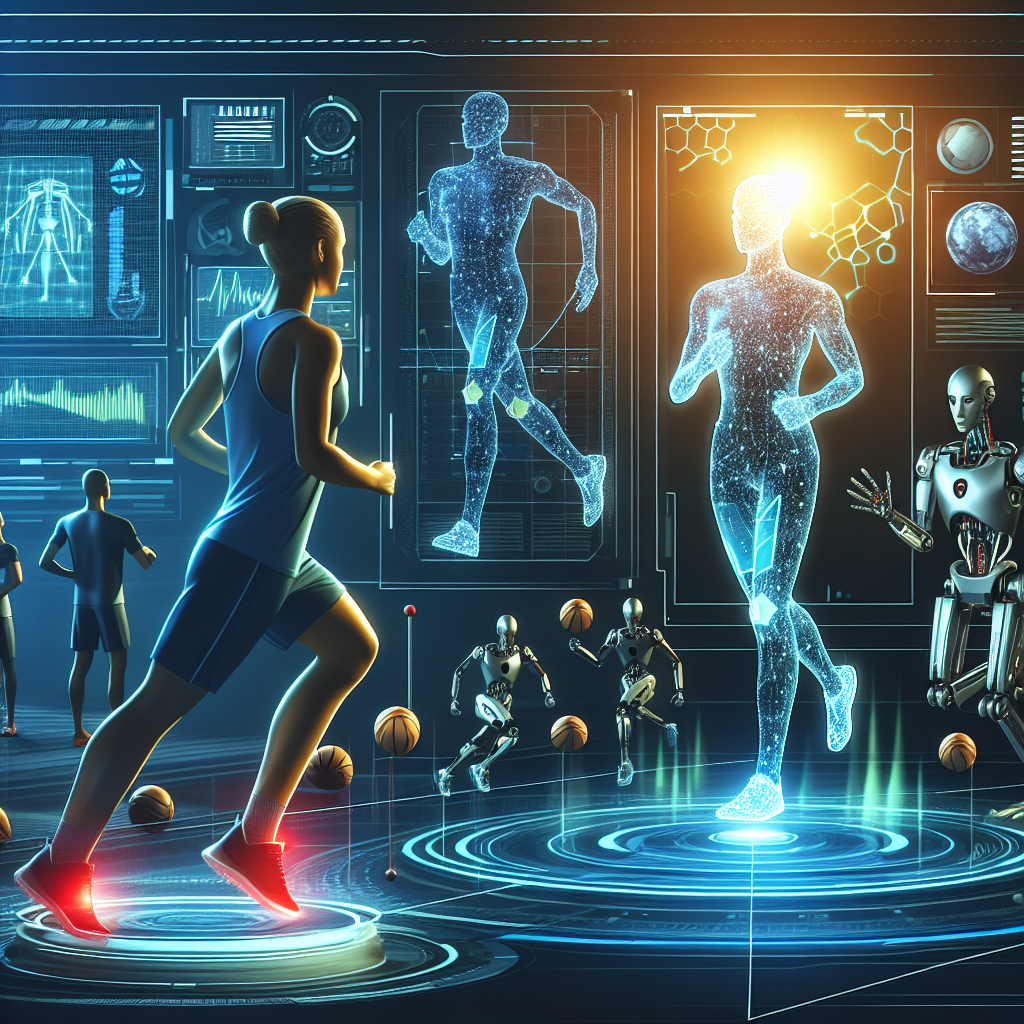Artificial intelligence (AI) is rapidly transforming the world of sports training, offering athletes and coaches innovative tools to enhance performance, prevent injuries, and optimize training programs. AI coaching is revolutionizing the way athletes prepare and compete, providing personalized insights and recommendations based on real-time data analysis. In this article, we will explore the future of AI coaching in sports training and how it is reshaping the landscape of athletics.
AI coaching uses advanced algorithms and machine learning to analyze vast amounts of data collected from sensors, wearables, and video recordings. These data points provide a comprehensive overview of an athlete’s performance, including speed, strength, agility, technique, and more. By processing this data, AI coaching systems can identify patterns, trends, and areas for improvement, allowing coaches to tailor training programs to individual athletes’ needs.
One of the key benefits of AI coaching is its ability to provide instant feedback to athletes during training sessions. By analyzing data in real-time, AI systems can detect flaws in technique, suggest adjustments, and offer coaching tips to help athletes improve their performance. This immediate feedback loop accelerates the learning process, allowing athletes to make adjustments on the fly and see results quickly.
Additionally, AI coaching can help athletes prevent injuries by monitoring biomechanical data and identifying potential risk factors. By analyzing movement patterns and load distribution, AI systems can detect signs of overtraining, poor form, or fatigue, and alert coaches to take corrective action. This proactive approach to injury prevention can prolong athletes’ careers and optimize their long-term performance.
Furthermore, AI coaching enables coaches to create personalized training programs for each athlete based on their unique strengths, weaknesses, and goals. By leveraging AI algorithms, coaches can design workouts, drills, and practice sessions that target specific areas for improvement, track progress over time, and adjust training plans accordingly. This individualized approach maximizes athletes’ potential and helps them reach peak performance levels.
In team sports, AI coaching can also play a significant role in enhancing collaboration, communication, and strategic decision-making. By analyzing game footage, player statistics, and opponent data, AI systems can provide coaches with valuable insights and recommendations to optimize game plans, rotations, and tactical adjustments. This data-driven approach can give teams a competitive edge and improve their overall performance on the field.
Overall, AI coaching is revolutionizing the way athletes train, compete, and improve their performance. By harnessing the power of artificial intelligence, coaches can unlock new levels of potential in their athletes, optimize training programs, prevent injuries, and enhance strategic decision-making. The future of sports training is here, and AI coaching is leading the way towards a more efficient, effective, and personalized approach to athletic development.
FAQs:
1. How does AI coaching work?
AI coaching uses advanced algorithms and machine learning to analyze data collected from sensors, wearables, and video recordings. By processing this data, AI systems can provide personalized insights, feedback, and recommendations to athletes and coaches to optimize training programs and enhance performance.
2. What are the benefits of AI coaching?
AI coaching offers athletes and coaches instant feedback, personalized training programs, injury prevention insights, and data-driven decision-making tools. These benefits help athletes improve their performance, prevent injuries, and reach peak potential in their respective sports.
3. Is AI coaching only for elite athletes?
No, AI coaching can benefit athletes of all levels, from beginners to professionals. By providing personalized insights and recommendations, AI coaching can help athletes improve their skills, prevent injuries, and optimize their training programs, regardless of their level of experience or expertise.
4. How can coaches integrate AI coaching into their training programs?
Coaches can integrate AI coaching into their training programs by using AI systems to analyze data, provide feedback, and optimize training plans. By leveraging AI algorithms, coaches can tailor workouts, drills, and practice sessions to meet the individual needs of their athletes and enhance their performance.
5. What is the future of AI coaching in sports training?
The future of AI coaching in sports training is bright, with continued advancements in technology, data analysis, and machine learning. AI coaching will play a significant role in shaping the way athletes train, compete, and improve their performance, offering innovative tools and insights to optimize athletic development.

